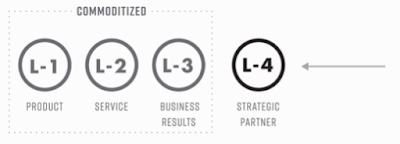Vamos sendo aquilo que vamos construindo-nos e não adianta sonhar em alterar o passado. No entanto, há algo que muitas vezes me assalta como um sentimento de culpa.
Trabalho por conta própria desde 1994, depois de ter começado por trabalhar durante quase 8 anos por conta de outrem. O que estes quase 25 anos de trabalho por conta própria me deram, ou me potenciaram desenvolver, foi um optimismo que creio que nunca seria capaz de respirar se fosse funcionário.
É claro que nem tudo depende de mim, é claro que a vida não é um mar de rosas, é claro que a incerteza está sempre presente, é claro que os loucos que influenciam a macroeconomia têm cada vez mais poder para me afectar, para me roubar, para me impor barreiras, mas no essencial sou eu que vou ao volante, sou eu que respondo pelo que me acontece e não posso culpar mais ninguém.
E culpo-me de não ter passado mais optimismo para os meus filhos. Uma está a trabalhar no CERN na Suíça e o outro estuda cinema (quem me conhece provoca-me, prevendo que será mais um maluco do BE) e julgo que estão bem e terão futuro. No entanto, quando nos reunimos à mesa sinto que há muito cinismo acerca do mundo e menos optimismo.
Este sentimento de culpa arranjou uma âncora quando descobri este artigo já há algum tempo "
Why Encouraging Optimism Should Be Your First Business Strategy":
"When Bert and John Jacobs were growing up in a large family with little money, their family didn't dwell on their problems or what they didn't have. Each time they sat down at the dinner table, Bert and Jacob's mother would cut through the noise and say, "Tell me something good that happened today." By focusing on the good things that happened each day, their mother changed the energy in the room--and their family.
.
I apply a similar philosophy at my meetings. We start each meeting with asking, "What's up, what's down, and what's stuck?" I've found that by starting with the phrase "What's up?" as in what's going well, my team immediately focuses on the positive work that is being accomplished in our department. What could have easily become a bitch fest, complaining about problems and coworkers, instead becomes mutual praise and celebrations of accomplishments. The positive energy carries over into problem solving and we get more done.
.
Focus on the positive in your team to build the energy in the group. Focusing on the positive give people the confidence to tackle anything that comes their way."
E reforçou-se quando li recentemente em "Reinventing Organizations: An Illustrated Invitation to Join the Conversation on Next-Stage Organizations" de Frederic Laloux:
"At Sounds True, every meeting starts with a minute of silence. FAVI, for many years, had the practice of starting every meeting with all participants sharing a brief story of someone they had recently thanked or congratulated. The practice creates a mood of possibility, gratitude, celebration, and trust in other people’s goodness and talents. It helps to shift the focus away from self-centered goals and toward reconnecting with the broader needs of the organization."
E materializou-se neste postal quando ontem à noite vi um episódio do Masterchef Austrália e dei comigo a reflectir sobre a dose, sobre a cultura de saudável optimismo, de agradecimento, de relação que existe no programa, faz salientar e desenvolver o que as pessoas têm de melhor e dá-lhes energia para explorar os seus limites
E concluí que em Mongo, um universo económico em que os empreendedores, as micro e pequenas empresas abundam, o optimismo será um factor fundamental porque o emprego do século XX vai encolher, e só gente optimista, (mas também desesperada), se mete a montar um negócio. (Ou, na opinião dos bloquistas, gente burra, mas adiante). E Mongo vai ser bom para os negócios pequenos.






















%2006.21.jpeg)












